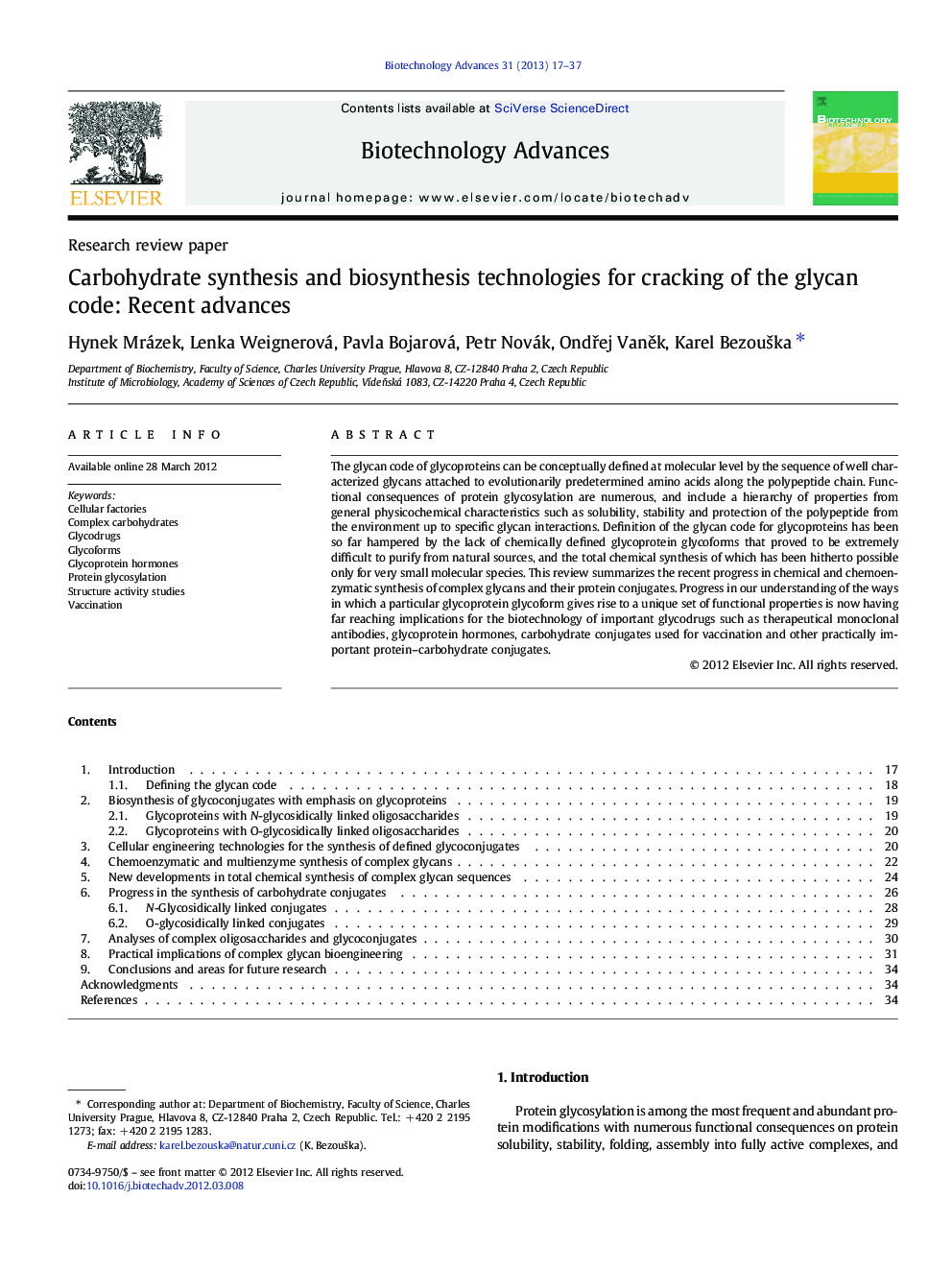| Article ID | Journal | Published Year | Pages | File Type |
|---|---|---|---|---|
| 10231528 | Biotechnology Advances | 2013 | 21 Pages |
Abstract
The glycan code of glycoproteins can be conceptually defined at molecular level by the sequence of well characterized glycans attached to evolutionarily predetermined amino acids along the polypeptide chain. Functional consequences of protein glycosylation are numerous, and include a hierarchy of properties from general physicochemical characteristics such as solubility, stability and protection of the polypeptide from the environment up to specific glycan interactions. Definition of the glycan code for glycoproteins has been so far hampered by the lack of chemically defined glycoprotein glycoforms that proved to be extremely difficult to purify from natural sources, and the total chemical synthesis of which has been hitherto possible only for very small molecular species. This review summarizes the recent progress in chemical and chemoenzymatic synthesis of complex glycans and their protein conjugates. Progress in our understanding of the ways in which a particular glycoprotein glycoform gives rise to a unique set of functional properties is now having far reaching implications for the biotechnology of important glycodrugs such as therapeutical monoclonal antibodies, glycoprotein hormones, carbohydrate conjugates used for vaccination and other practically important protein-carbohydrate conjugates.
Related Topics
Physical Sciences and Engineering
Chemical Engineering
Bioengineering
Authors
Hynek Mrázek, Lenka Weignerová, Pavla Bojarová, Petr Novák, OndÅej VanÄk, Karel BezouÅ¡ka,
